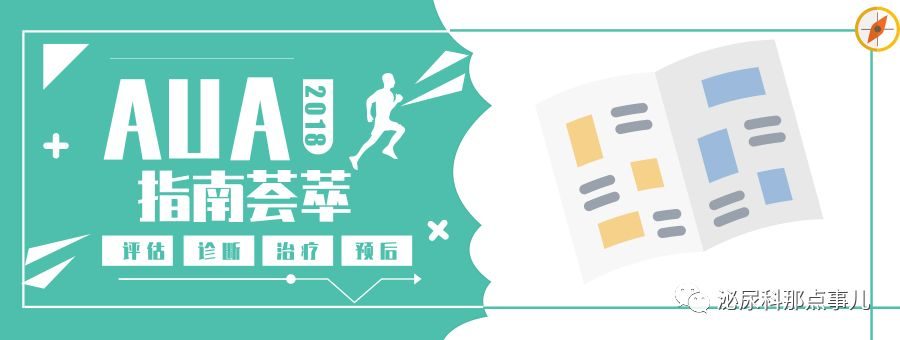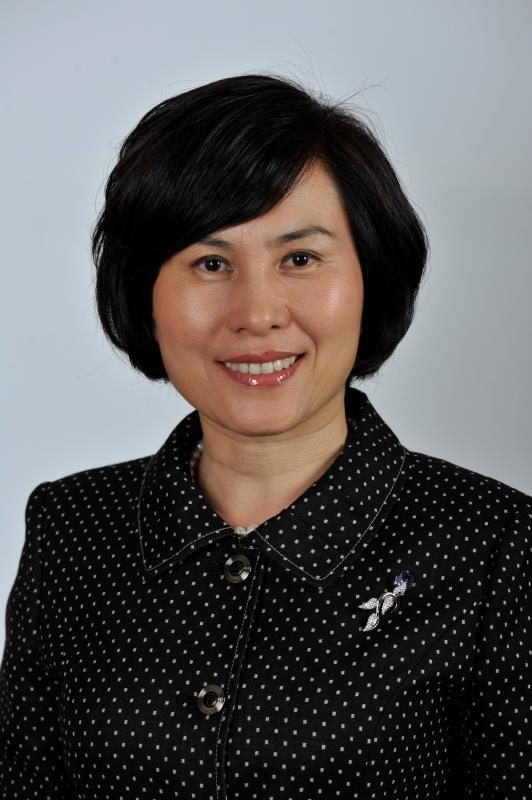

Evaluation and management of testosterone deficiency
Guideline statements
指 南 要 覽
Diagnosis of Testosterone Deficiency
睾酮缺失的診斷
1. Clinicians should use a total testosterone level below 300 ng/dL as a reasonable cut-off in support of the diagnosis of low testosterone.
(Moderate Recommendation; Evidence Level: Grade B)
1. 建議將總體睾酮水準低於300ng/dL作為支持診斷為低睾酮症的合理的截斷點。(標準推薦;證據水準:B級)
2. The diagnosis of low testosterone should be made only after two total testosterone measurements are taken on separate occasions with both conducted in an early morning fashion.
(Strong Recommendation; Evidence Level: Grade A)
2. 按上述標準,低睾酮症的診斷,應當以不同的清晨時刻分別測定的兩次總睾酮水準的結果為標準。(強烈推薦;證據水準:B級)
3. The clinical diagnosis of testosterone deficiency is only made when patients have low total testosterone levels combined with symptoms and/or signs.
(Moderate Recommendation; Evidence Level: Grade B)
3. 臨床上睾酮缺失的診斷,僅在患者檢測出低睾酮水準且合併癥狀和(或)體征時確診。(標準推薦;證據水準:B級)
4. Clinicians should consider measuring total testosterone in patients with a history of unexplained anemia, bone density loss, diabetes, exposure to chemotherapy, exposure to testicular radiation, HIV/AIDS, chronic narcotic use, male infertility, pituitary dysfunction, and chronic corticosteroid use even in the absence of symptoms or signs associated with testosterone deficiency.
(Moderate Recommendation; Evidence Level: Grade B)
4.在衡量患者總體睾酮水準時,需要考慮既往史中是否包含難以解釋的貧血,骨密度的丟失,糖尿病,化療的暴露,睾丸放療的暴露,愛滋病,慢性麻醉藥品的使用,男性不育症,腦垂體功能障礙及慢性皮質類固醇藥物的使用等,存在上述病史,即使無合併有癥狀或體征,仍需考慮睾酮缺失。(標準推薦;證據水準:B級)
5. The use of validated questionnaires is not currently recommended to either define which patients are candidates for testosterone therapy or to monitor symptom response in patients on testosterone therapy.
(Conditional Recommendation; Evidence Level: Grade C)
5. 目前不再推薦使用問卷調查確認的方式來界定哪些候選患者需要睾酮補充療法,及不再用以監測患者對於睾酮補充療法的癥狀反應性。(有條件的推薦;證據水準:C級)
Adjunctive Testing
輔助檢查
6. In patients with low testosterone, clinicians should measure serum luteinizing hormone levels.
(Strong Recommendation; Evidence Level: Grade A)
6. 當患者檢測出低睾酮水準,應當進一步檢測血清促黃體激素水準。(強烈推薦;證據水準:A級)
7. Serum prolactin levels should be measured in patients with low testosterone levels combined with low or low/normal luteinizing hormone levels.
(Strong Recommendation; Evidence Level: Grade A)
7. 當患者檢測出低睾酮水準,合併低或(低/正常)的血清促黃體激素水準時,應當進一步檢測血清催乳素水準。(強烈推薦;證據水準:A級)
8. Patients with persistently high prolactin levels of unknown etiology should undergo evaluation for endocrine disorders.
(Strong Recommendation; Evidence Level: Grade A)
8. 患者伴隨不明原因的持續高水準的血清催乳素,應當進行充分評估內分泌紊亂。(強烈推薦;證據水準:A級)
9. Serum estradiol should be measured in testosterone deficient patients who present with breast symptoms or gynecomastia prior to the commencement of testosterone therapy. (Expert Opinion)
9. 睾酮缺失患者,伴隨乳房癥狀或在睾酮補充治療前即出現男性乳腺發育時,應當檢測血清雌二醇水準。(專家建議)
10. Men with testosterone deficiency who are interested in fertility should have a reproductive health evaluation performed prior to treatment.
(Moderate Recommendation; Evidence Level: Grade B)
10. 睾酮缺失並有生育要求的患者,在治療前應當進行生殖健康的評估。(標準推薦;證據水準:B級)
11. Prior to offering testosterone therapy, clinicians should measure hemoglobin and hematocrit and inform patients regarding the increased risk of polycythemia.
(Strong Recommendation; Evidence Level: Grade A)
11.在提供睾酮補充治療前,應當檢測患者的血清血紅蛋白和紅細胞壓積水準,並告知其可能在治療後出現紅細胞增多症。(強烈推薦;證據水準:A級)
12. PSA should be measured in men over 40 years of age prior to commencement of testosterone therapy to exclude a prostate cancer diagnosis. (Clinical Principle)
12. 在年齡超過40歲的患者開始睾酮補充治療前,應當常規置檢測PSA水準以排除攝護腺癌。(臨床原則)
Counseling Regarding Treatment of Testosterone Deficiency
睾酮缺失的治療諮詢
13. Clinicians should inform testosterone deficient patients that low testosterone is a risk factor for cardiovascular disease.
(Strong Recommendation; Evidence Level: Grade B)
13. 應當告知睾酮缺失患者,低睾酮水準是心血管疾病的高危因素之一。(強烈推薦;證據水準:B級)
14. Patients should be informed that testosterone therapy may result in improvements in erectile function, low sex drive, anemia, bone mineral density, lean body mass, and/or depressive symptoms.
(Moderate Recommendation; Evidence Level: Grade B)
14. 應當告知患者,睾酮補充治療可能改善,包括勃起功能,較低性慾,貧血,骨密度,較瘦的體質和(或)抑鬱的癥狀。(標準推薦;證據水準:B級)
15. Patients should be informed that the evidence is inconclusive whether testosterone therapy improves cognitive function, measures of diabetes, energy, fatigue, lipid profiles, and quality of life measures.
(Moderate Recommendation; Evidence Level: Grade B)
15. 應當告知患者,睾酮補充治療能否確鑿的改善認知功能,降低糖尿病程度,提升精力,緩解疲乏,降低血脂及改善總體生活水準,這些尚缺乏臨床證據。(標準推薦;證據水準:B級)
16. The long-term impact of exogenous testosterone on spermatogenesis should be discussed with patients who are interested in future fertility.
(Strong Recommendation; Evidence Level: Grade A)
16. 應當和睾酮缺失並有生育要求的患者充分溝通,長期外源性的睾酮補充對於精子生成的影響。(強烈推薦;證據水準:A級)
17. Clinicians should inform patients of the absence of evidence linking testosterone therapy to the development of prostate cancer.
(Strong Recommendation; Evidence Level: Grade B)
17. 應當告知患者,目前並無睾酮補充治療可能導致攝護腺癌的臨床證據。(強烈推薦;證據水準:B級)
18. Patients with testosterone deficiency and a history of prostate cancer should be informed that there is inadequate evidence to quantify the risk-benefit ratio of testosterone therapy. (Expert Opinion)
18. 應當告知,既往患有攝護腺癌的睾酮缺失患者,具體量化睾酮補充治療後的風險收益比,尚缺乏充分的臨床證據。(專家建議)
19. Patients should be informed that there is no definitive evidence linking testosterone therapy to a higher incidence of venothrombolic events.
(Moderate Recommendation; Evidence Level: Grade C)
19. 應當告知患者,目前並無睾酮補充治療可能導致靜脈血栓更高發生率的臨床證據。(標準推薦;證據水準:C級)
20. Prior to initiating treatment, clinicians should counsel patients that, at this time, it cannot be stated definitively whether testosterone therapy increases or decreases the risk of cardiovascular events (e.g.myocardialinfarction, stroke, cardiovascular-related death, all-cause mortality).
(Moderate Recommendation; Evidence Level: Grade B)
20. 在初始治療前,應當勸告患者,在此刻睾酮補充治療不能明確肯定是否會增加或降低心血管事件發生的風險(比如,心梗,中風,心血管相關的猝死,所有可能原因的死亡)。(標準推薦;證據水準:B級)
21. All men with testosterone deficiency should be counseled regarding lifestyle modifications as a treatment strategy.
(Conditional Recommendation; Evidence Level: Grade B)
21. 作為一個治療的策略,所有睾酮缺失的患者都應當被告誡關於生活方式的改變。(有條件的推薦;證據水準:B級)
Treatment of Testosterone Deficiency
睾酮缺失的治療
22. Clinicians should adjust testosterone therapy dosing to achieve a total testosterone level in the middle tertile of the normal reference range.
(Conditional Recommendation; Evidence Level: Grade C)
22. 專科醫師應當調整睾酮素治療劑量,以達到患者睾酮水準恢復到正常參考範圍的中位數值為宜。(有條件的推薦;證據水準:C級)
23. Exogenous testosterone therapy should not be prescribed to men who are currently trying to conceive.
(Strong Recommendation; Evidence Level: Grade A)
23. 對於目前嘗試準備生育的患者,不推薦事先進行外源性的睾酮補充治療。(強烈推薦;證據水準:A級)
24. Testosterone therapy should not be commenced for a period of three to six months in patients with a history of a cardiovascular events. (Expert Opinion)
24.在患者患有一項心血管相關事件後的3-6個月內,不推薦睾酮補充治療即開始。(專家建議)
25. Clinicians should not prescribe alkylated oral testosterone.
(Moderate Recommendation; Evidence Level: Grade B)
25. 不推薦烷基化來源的口服睾酮藥物。(標準推薦;證據水準:B級)
26. Clinicians should discuss the risk of transference with patients using testosterone gels/creams.
(Strong Recommendation; Evidence Level: Grade A)
26. 應當探討患者使用睾酮素凝膠乳膏的潛在轉移風險。(強烈推薦;證據水準:A級)
27. Clinicians may use aromatase inhibitors, human chorionic gonadotropin, selective estrogen receptor modulators, or a combination thereof in men with testosterone deficiency desiring to maintain fertility.
(Conditional Recommendation; Evidence Level: Grade C)
27. 對於睾酮缺失並有強烈生育要求的患者,可以使用芳香酶抑製劑,人促絨毛膜促性腺激素,可選擇性的雌激素受體調節劑,或以上的組合用藥。(有條件的推薦;證據水準:C級)
28. Commercially manufactured testosterone products should be prescribed rather than compounded testosterone, when possible.
(Conditional Recommendation; Evidence Level: Grade C)
28. 有條件時,商業製造的睾酮素產品治療時優先於混合型的睾酮素製劑。(有條件的推薦;證據水準:C級)
Follow-up of Men on Testosterone Therapy
患者睾酮補充治療後的隨訪
29. Clinicians should measure an initial follow-up total testosterone level after an appropriate interval to ensure that target testosterone levels have been achieved. (Expert Opinion)
29.專科醫師應該估量一段合適的間隔期後,患者首次隨診檢測的總體睾酮水準,以確保能達到目標睾酮水準。(專家建議)
30. Testosterone levels should be measured every 6-12 months while on testosterone therapy. (Expert Opinion)
30. 在進行睾酮補充治療期間,應當每6-12個月檢測一次睾酮水準。(專家建議)
31. Clinicians should discuss the cessation of testosterone therapy three to six months after commencement of treatment in patients who experience normalization of total testosterone levels but fail to achieve symptom or sign improvement. (Clinical Principle)
31.睾酮補充治療開始3-6個月後,患者雖然恢復了正常睾酮水準,但是臨床癥狀或體征卻沒有得到改善,此刻專科醫師應當探討是否停葯。(臨床原則)
*翻譯僅供學習交流,不作為臨床實踐標準
PDF指南全文獲取
方式一:
後台回復"20190515"獲取鏈接
顧
 播放GIF
播放GIF







